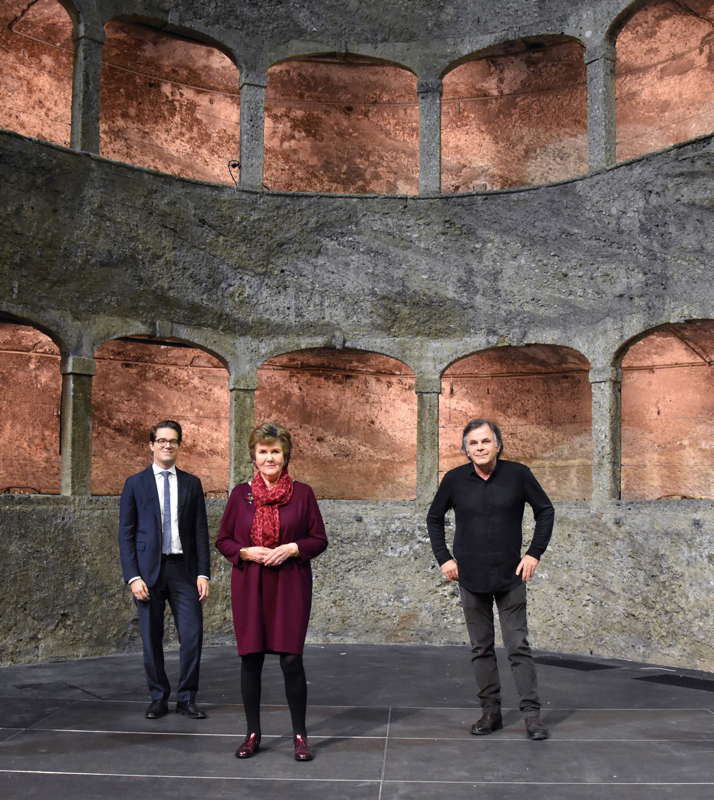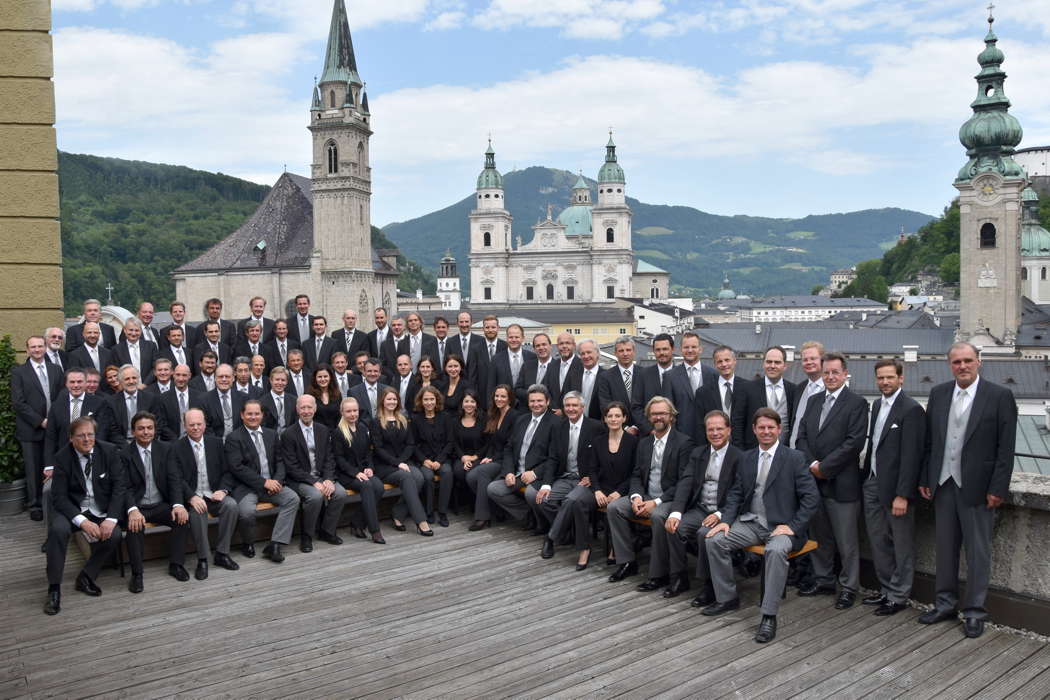 CENTRAL ENGLAND: Mike Wheeler's concert reviews from Nottingham and Derbyshire feature high profile artists on the UK circuit - often quite early on their tours.
CENTRAL ENGLAND: Mike Wheeler's concert reviews from Nottingham and Derbyshire feature high profile artists on the UK circuit - often quite early on their tours.
SALZBURG 2021

GIUSEPPE PENNISI looks forward to the Salzburg Summer Festival which has Peace as its theme
At an international online press conference on 11 December 2020, the The Salzburg Festival Directorate - Helga Rabl-Stadler, President, Markus Hinterhäuser, Artistic Director and Lukas Crepaz, Executive Director, with Bettina Hering, Director of Drama and Florian Wiegand, Director of Concerts & Media, unveiled the program of the Salzburg Festival 2021.
They recalled that in 2020, 'From Salzburg, we sent a powerful signal to the world by carrying out the festival, albeit in reduced form. This beacon was lit thanks to our wonderful artists, our staff, and you - our valued audience. Thank you for your enthusiasm, and also for maintaining the discipline that is so necessary throughout this pandemic', They emphasized that: 'We aim to send another similarly powerful signal in 2021. Our plan next summer is to present important work that could not be realized in 2020. These opera, theatre and concert performances will extend the Festival's centennial celebrations until the autumn of 2021'.

The Salzburg Festival's Board of Directors. Photo © 2020 Anne Zeuner
In the Whitsun Festival (21-24 May 2021) Cecilia Bartoli pays homage to Rome, the eternal city and her hometown. Rome has long inspired poets, composers, film-makers and painters as a metropolis of many faces: for one hundred and fifty years Rome has been the capital of modern Italy and has retained its contradictory identities, of proud splendour, on the one hand, and of decadence and decay, on the other. The key opera production will be Il trionfo del Tempo e del Disinganno, composed by George Frideric Handel during a voyage to Italy, which brought him to Rome in 1707; the production will be also performed during the Summer Festival. There will also be concert performances of Mozart's La Clemenza di Tito and of Puccini's Tosca as well as concerts focused on Rome.
Under the heading of 'Pax - Peace', the Summer Festival (17 July-31 August) will tie in to the founding idea of the Festival as a project devoted to peace through the spirit of the arts. Two completely opposed ways of perceiving the world are a central preoccupation of the festival's opera and theatre productions. On the one hand, radical individualism. On the other, the humanistic idea of a society based on solidarity, as invoked by Luigi Nono in his work Intolleranza 1960. Nobody could have guessed the significance this conflict would have today and how painfully the loss of togetherness would be felt.
The festival includes eight opera productions - Mozart's Don Giovanni and Così fan tutte, Strauss' Elektra, Handel's Il trionfo del Tempo e del Disinganno, Puccini's Tosca, Nono's Intolleranza 1960, Feldman's Neither and Berlioz's La Damnation de Faust. In six weeks, this is nearly a program of a full yearly season of a middle sized European opera house. 'While Don Giovanni, Richard III or even Elektra bestride the world with remarkable ruthlessness, acting almost without human ties and without systems of social order', Artistic Director Markus Hinterhäuser explains, 'we join Luigi Nono in asking the important questions: what is community? How can we try to find a kind of justice? - Thus, we offer a counter-model to radical individualism, namely Luigi Nono's appeal to humanity: Intolleranza 1960 - a work of humanism, a work of altruism, a work of justice'.
Intolleranza 1960 can be understood as a modern passion, focusing on the awakening of human consciousness and the fundamental conditions of human life. 'Luigi Nono speaks of the certainty that humans must be helpers to humankind. There is no truer way to phrase this: how we as humans must act and react within a world which is increasingly relentless, but with which we must deal, in which we must live. This reflection on the notions of "tolerance" and "intolerance" has presumably never been more important than today, now, at this very hour'.
The details can be seen in the festival web site - salzburgerfestspiele.at
They show that excellent directors, conductors and cast are involved. The concert section entails eighty concerts by the best known orchestras and singers. The drama section features four productions and seven readings and discussions. Once more, I refer to the web site for the specifications. In short, 168 performances in 46 days at seventeen performance venues.

The Vienna Philharmonic Orchestra. Photo © 2017 Anne Zeuner
as well as 62 performances of seven productions of the youth programme at thirty venues and five participatory projects involving nearly a thousand children and teenagers from fifty-four school classes, forty-two of them from outside of Salzburg, there are additional events as part of 'Zum Fest' (Centenary Events).
The current situation of the pandemic makes it difficult to imagine normal operating conditions for 2021. The Salzburg Festival will proceed in two steps: assuming full capacity, 209,961 tickets will be used for 168 performances as well as sixty-two performances in the youth programme in 2021. Of these, 139,380 will be released for sale first; the remaining third will be released when the development of the pandemic allows and when the legal basis and the recommendations of our expert council make this advisable. As last year, all tickets will be personalized. Tickets can be ordered from the start as e-tickets - print@home tickets. Altering the personalization will be possible online free of charge. The deadline for ticket orders (usually in early January) will be postponed to 28 February 2021. Ticket sales to the general public begin on 10 May 2021.
Rome, Italy

FURTHER ARTICLES ABOUT THE SALZBURG FESTIVAL


